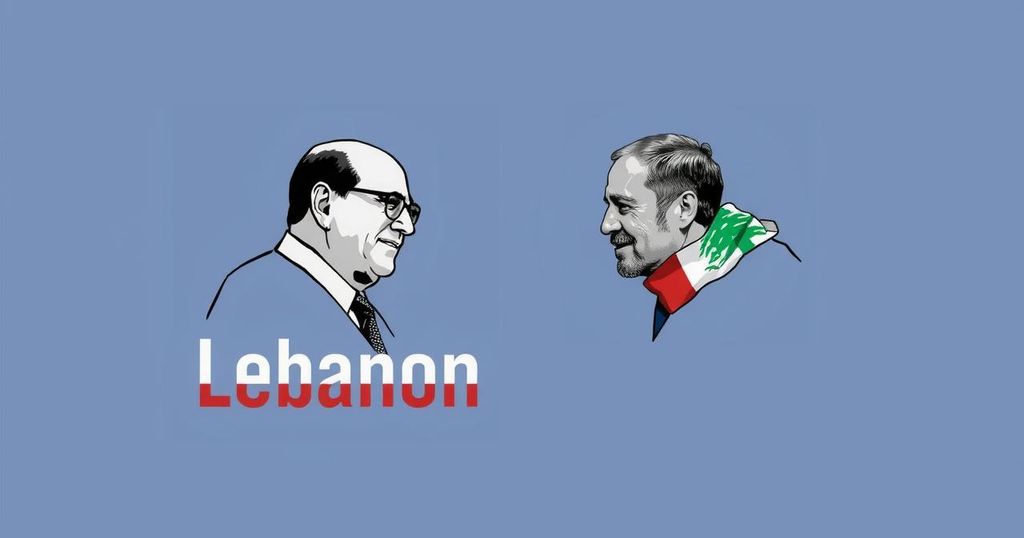World Leaders Praise Ceasefire Between Israel and Hezbollah

World leaders have welcomed a ceasefire between Israel and Hezbollah, effective from Wednesday. The agreement is seen as a means to safeguard Israel from Hezbollah and promote regional stability. U.S. President Joe Biden and French President Emmanuel Macron reaffirmed their commitment to ensuring its implementation. Various leaders acknowledged the ceasefire as a step towards broader peace efforts, despite recognizing the challenges that lie ahead.
World leaders have expressed their approval of a ceasefire agreement established between Israel and the Lebanese militant organization Hezbollah, which commenced on Wednesday at 0200 GMT. U.S. President Joe Biden and French President Emmanuel Macron remarked that this ceasefire serves to safeguard Israel from the Iranian-supported Hezbollah and is a precursor to building a “lasting calm” in the region. They emphasized their commitment to ensuring the full implementation of the agreement and to enhancing the capabilities of the Lebanese army.
President Biden characterized the ceasefire as “good news” while announcing plans for renewed efforts to attain a truce between Israel and the Palestinian militant group Hamas. Macron noted that the cessation of hostilities in Lebanon could facilitate an end to the conflict in Gaza as well. Israeli Prime Minister Benjamin Netanyahu expressed gratitude to Biden for his instrumental role in securing the ceasefire, while outlining that its duration would depend largely on developments within Lebanon. He indicated that the truce provided Israel with the opportunity to escalate pressure on Hamas amid ongoing concerns regarding the Iranian threat.
Lebanese Prime Minister Najib Mikati described the ceasefire as an essential measure for reinstating regional stability, thanking both France and the United States for their involvement. Iran, a supporter of Hezbollah and Hamas, also welcomed the ceasefire, framing the cessation of hostilities as a repudiation of Israeli aggression against Lebanon.
German Foreign Minister Annalena Baerbock praised the agreement, calling it “a ray of hope for the entire region,” while British Prime Minister Keir Starmer labeled it a “long overdue” step toward providing relief to both Israeli and Lebanese civilians. He expressed the need to transform the truce into a long-term political solution. Similarly, European Commission President Ursula von der Leyen remarked that this ceasefire presents an opportunity to enhance internal security and stability in Lebanon, particularly with a diminished influence from Hezbollah.
Despite the positive reactions, a senior U.N. official cautioned that significant efforts remain necessary to implement the ceasefire fully, stating that unwavering commitment from both sides is essential to achieving lasting peace and stability.
The recent ceasefire between Israel and Hezbollah marks a pivotal moment in Middle Eastern diplomacy. This agreement arises from a backdrop of ongoing conflict, particularly noted for the adverse effects on civilians in both regions. Various international leaders, including those from the United States and France, have been actively involved in mediating this conflict, reflecting broader geopolitical interests and alliances, particularly concerning the roles of Iran and militant groups like Hamas and Hezbollah. The successful endorsement of this ceasefire is indicative of international efforts toward restoring peace and stability in a historically volatile area.
In conclusion, the ceasefire between Israel and Hezbollah represents a significant diplomatic achievement, highlighted by a unified response from world leaders advocating for peace and stability in the region. While preliminary reactions have been optimistic, the complexities of the situation necessitate ongoing vigilance and cooperation to ensure long-term success. The commitment shown by the involved governments and organizations illustrates a collective desire to mitigate violence and improve the security of affected populations in both Israel and Lebanon.
Original Source: www.hurriyetdailynews.com








